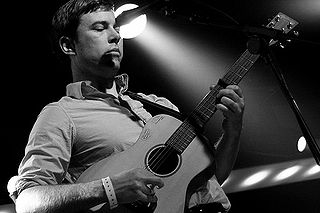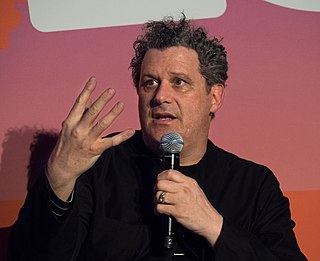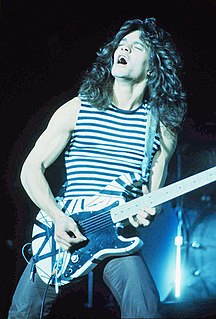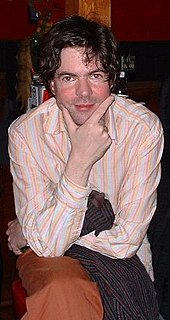A Quote by Beck
In recording, you're trying to make something work sonically - getting the right inflection on the right guitar sound - and maybe a part that would be musically great doesn't sound as cool. On paper, though, it's all stripped back. The musical idea is the one that wins.
Related Quotes
I loved the idea of recording. The idea of sound-on-sound-recording captured me as a young kid, and once I realized what it was I had an epiphany. Before I was even playing the guitar, I would create these lists of how I would record things and overdub them, like Led Zeppelin song, 'I could put this guitar on this track...' and so on.
I knew absolutely nothing about recording. I had this four-track recorder, and I'd plug my electric guitar right into it, which sounded real bad. I moved any fader that made a drastic change in sound. I thought that was cool - that it was communicating something. I didn't have the skills to do anything subtle. It was just like screaming.
We needed to make a sound that's not gonna fit in with everything else - we wanted to make something that was completely unique and individual to us. We spent a lot of time trying to make a sound that was a One Direction sound. At first it was quite hard to do that, but I'm really happy with the sound.
It's not that you get a cliché and then wiggle it about or use synonyms. You don't take an ordinary decorative paragraph and give it style. What you're trying to do is be faithful to your perceptions and transmit them as faithfully as you can. I say these sentences until they sound right. There's no objective reason why they're right. They just sound right to me.
When you get an idea, so many things come in that one moment. You could write the sound of that idea, or the sound of the room it's in. You could write the clothes the character is wearing, what they're saying, how they move, what they look like. Instead of making up, you're actually catching an idea, for a story, characters, place, and mood - all the stuff that comes. When you put a sound to something and it's wrong, it's so obvious. When it's right, the whole is greater than the sum of the parts. That's a magical thing that can happen in cinema.
In fact, quite a lot of what I do has to do with sound texture, and, you can't notate that. You can't notate the sound of "St. Elmo's Fire." There's no way of writing that down. That's because musical notation arose at a time when sound textures were limited. If you said violins and woodwind that defined the sound texture; if I say synthesizer and guitar it means nothing - you're talking about 28,000 variables.
If you're recording the song on your four-track in your kitchen, when you finished writing the song, you're recording, and it's cool, and honor that. And maybe that's the version that should be released. And if you're recording the song again, it shouldn't be because there's a version you love that you're chasing. It should be because "You know what? I made a recording, but I don't love it emotionally." So, okay, then record again. And be in it and take advantage of the buzz and energy of "I'm getting to record right now!" It's such a beautiful and cool privilege.
I was pillaging a lot of music that had nothing to do with guitar playing, using a lot of strange tunings and voicings and chord structures that aren't really that natural to the guitar; I ended up developing a harmonic palette that's not particularly natural to the guitar because I was always trying to make my guitar sound like something else.


































